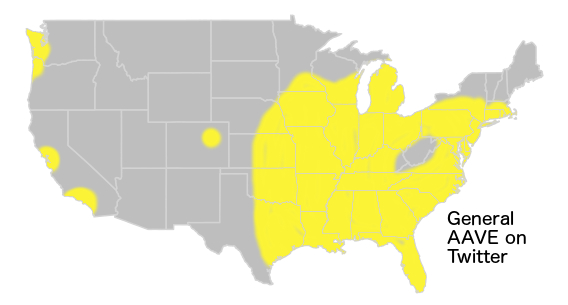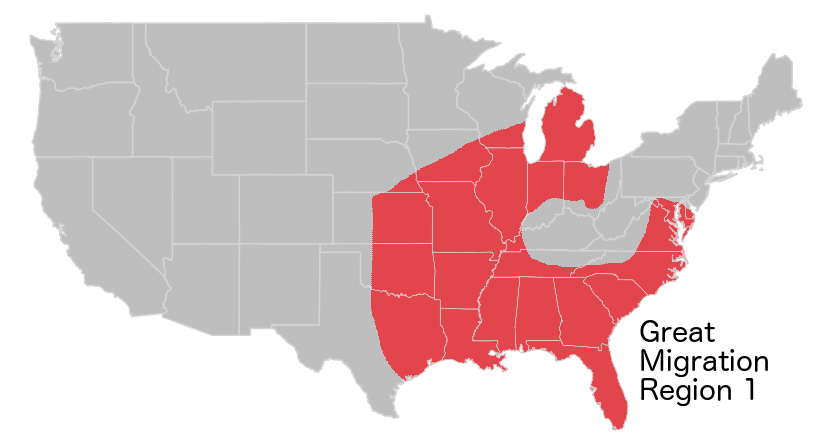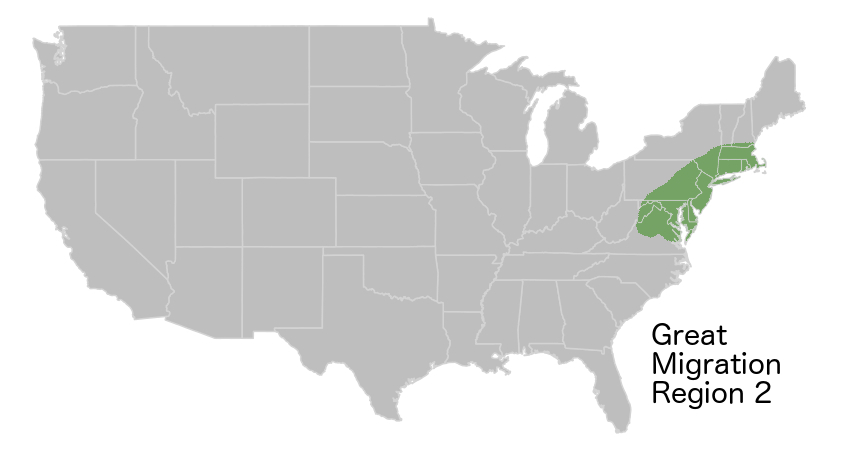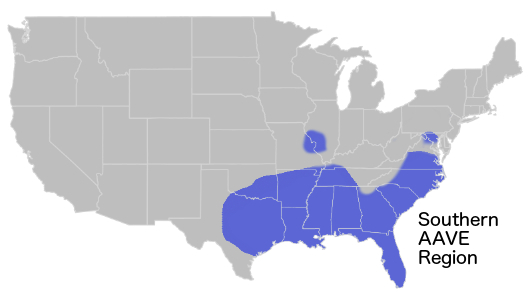What's in a name? Why do some linguists not call it African American Vernacular English (AAVE) anymore?
Today’s post will be a short one, but it’s something I should have written a long time ago. Thanks to social media, there is a rising awareness among the general public of the validity of the language variety most associated with Black Americans who are the descendants of enslaved people. However, just as people on Twitter are taking the term AAVE mainstream, linguists are moving away from it. This has created some awkward situations, in which well meaning lay people are suspicious of linguists doing cutting edge work, precisely because they are not using the same terminology. I tend, now, to use African American English or African American Language. Here’s a breakdown:
African American Language: This is the term now most used by linguists studying this language variety. The 2015 Oxford Handbook of African American Language has very thorough discussion as to why. The basic idea is that, in an academic environment, calling it African American English seems to suggest a particular position on the origin of the language variety. That is, people saying AAE in an academic environment might suggest they believe the Anglicist hypothesis that the language variety is basically English with some West African flavor (see Labov 1998 for an articulation of this argument). But we don’t know that, and it’s actually quite a contentious claim. Others (like John Rickford) argue convincingly for the Creole Origins Hypothesis, which says that AAL started as a creole — not a variety of English — and later became more like English through contact. Calling it AAL sidesteps any strong stance on origins, and does not presume mutual intelligibility with other varieties of English. This last part is important, as there is a growing body of evidence that English speakers who don’t also speak AAL actually don’t understand a lot of AAL. This is an area of ongoing research and contention.
African American English: I tend to use this when talking with the general public, in part because people haven’t heard of AAL, and in part because I’ve found that most people will understand AAE better as a valid variety of English than as a language variety in its own right that may seem mutually intelligible but isn’t always. Most English speakers understand most of the AAE they hear, and can be trained to understand all of it. They also intuitively understand that there are different varieties of English, and so tying it in to Appalachian, Southern, Scottish, Received Pronunciation, etc. helps people understand how it can be different, but still valid. This term is very similar to AAVE, but…it’s missing the V.
African American Vernacular English: AAE is missing the V because the V is for “vernacular”, which, in this case, means something like “casual”. In the 1970s and 80s, most of the work on AAVE was being done by white researchers who did not speak the language variety. This is still basically the case, although it’s changing. One result of this fact was that even the people attempting to valorize AAE implicitly viewed it as a casual register. Arthur Spears, however, has argued very convincingly (for at least 20 years) that there is also a “Standard” register which is different from white, mainstream, classroom English, and which is recognized as a formal standard register. Think about Dr. Martin Luther King Jr. giving a speech. He’s still got all of the phonological markers of African American speech, and many of the morphosyntactic markers, but it’s not vernacular by any stretch of the imagination. One example of AASE is the full closure and release of /t/ in the middle of a trochee (two syllables where the first is stressed). Most white Americans would pronounce /t/ as a flap in that situation, no matter the formality of the speech (think ladder/latter). However, many AAE speakers, when speaking formally, will release the /t/ similar to how it is released at the beginning of a word. So “identity” might be ‘eye-dennidy” [ɑ͡ɪdɛɾ̃ɪɾi] for even the most formal of white speakers, but “ah-dint-ih-tea” [ɑːdɪ̃tɪtʰi] for some AASE speakers. (I’m told that many HBCUs used to, or still do, have “diction” classes which cultivate this style of speaking). Notice that in the second example, there are features AAE shares with Southern (white) American English, like ah for eye and dint for dent, and that these are common in AAE but not universal, so someone from Harlem might say [ɑ͡ɪdɛ̃tɪtʰi] when speaking formally. The point is, historically AAE was thought of as being exclusively the domain of casual speech, and studies often privileged the way teenagers and gang members (!) spoke, and it wasn’t until there were more Black voices in the academy that this blind spot began to be corrected. It’s still a problem for the general public, as even the most well meaning people, many of whom speak AAE, will still assume that AAE is slang and miss that it is a complete linguistic system. On fleek is not AA(V)E from a linguistic perspective, but they don’t think it be like it is but it do is AAE. Much of the discussion of AAE and borrowing/appropriation misses that what is being borrowed often is slang, and that AAE is much, much harder to accurately imitate!
Ebonics: This term was originally coined to describe a variety of contact languages with African influence, and is a blend word of “ebony” and “phonics” for “black sounds”. This means that not only did Ebonics refer to African American Language, but it also refers to Gullah, to Black Canadian English, to Dominican Spanish, Haitian Kreyol, Jamaican Patwa, and Brazilian Portuguese, among others. In the 1990s there was a massive media storm over the term, after the Oakland school board attempted a (smart) maneuver to increase funding to teach literacy and classroom English to children who spoke AAL at home — they argued that AAL was not the same thing as English, and therefore funding earmarked for second language English learners should also go to underfunded English classes in primarily Black neighborhoods. The media latched onto this, and it was misrepresented as Oakland trying to teach all kids to “speak Ebonics” and there were tons of articles with titles like “Ain’t ain’t a word” (side note, imagine if it actually wasn’t — this would read like “blorf blorf a word!”). After 1996, the term ebonics became associated in the popular consciousness with (1) African American Language and (2) the idea that it is broken, bad, and defective. Because it is now effectively a pejorative for AAL, linguists no longer use it.
There are also a lot of historical names that are no longer used. It wasn’t until the late 1960s that linguists took AAL seriously, and in the beginning you’ll find papers talking about things like “Northern Negro English”, “Black English Vernacular (BEV")” or “Black English” (some linguists from that time still use the latter, although both BE and BEV seem to be about whether one prefers “Black” or “African American” which is an entirely separate conflict to wade into).
For all of these, it should be noted that the language variety is not exclusive to Black people, although they comprise the vast majority of the fluent speakers of AAL. This is similar to the situation with Russian. The vast majority of its speakers are from a handful of ethnic groups, but this is because of history and geopolitics, and not DNA. There’s no AAL gene that’s magically associated with melanin, but there is massive residential and educational segregation in the US, and a strong social stigma against AAL, so it’s rare to find fluent, native, non-Black speakers. Because it is the language of an oppressed people, there are also strong feelings around ownership and who has the right to speak it, even seemingly paradoxically, among black folks who don’t speak it.
I think most linguists working on AAL would love to see AAL catch on in the mainstream, but I think this is highly unlikely. I do, however, hope to see AAE replace AAVE, as that V is doing a lot of work. I have published papers that use AAVE, where appropriate — like when Christopher Hall and I wrote about “the n-word” which only occurs in informal speech — but it feels weird to see people attempting to valorize AAL while simultaneously implicitly calling it informal and vernacular.
For more on these, check out the videos below. The first is an interview with Dr. Lanehart, the editor of the Oxford Handbook of African American Language (OHAAL), and a proponent of the term AAL. The second is a discussion of African American language use with four experts.
-----
©Taylor Jones 2020
Have a question or comment? Share your thoughts below!
















